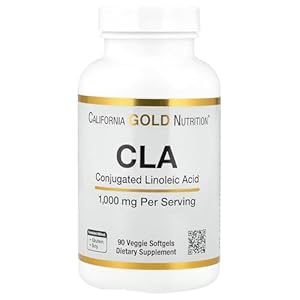
When it comes to improving your health, incorporating certain herbs and spices into your meals can be a game-changer. Imagine a world where a pinch of this and a sprinkle of that could make a significant difference in how you feel every day. These powerful ingredients hold the key to unlocking a healthier version of yourself, but which ones should you focus on? The answer lies in the potent properties of a select few, each with its unique ability to boost your well-being.
Immune-Boosting Herbs
Boost your immune system with these powerful herbs and spices. One of the most effective herbs for boosting immunity is echinacea. This herb is known for its ability to enhance the body’s natural defense mechanisms against infections. Incorporating echinacea into your daily routine can help ward off colds and flu.
Another herb that can strengthen your immune system is astragalus. Astragalus has been used in traditional Chinese medicine for centuries to support immune function. Its antioxidant properties help protect cells from damage and reduce inflammation in the body.
Garlic isn’t only a flavorful addition to your meals but also a potent immune booster. It contains allicin, a compound that has antimicrobial properties, helping to fight off bacteria and viruses. Adding garlic to your diet regularly can help keep your immune system strong.
Turmeric is a spice that can also contribute to a healthy immune system. Curcumin, the active ingredient in turmeric, has anti-inflammatory and antioxidant properties that support immune function. Including turmeric in your cooking or taking it as a supplement can help bolster your body’s defenses.
Anti-Inflammatory Spices
Consider incorporating a variety of anti-inflammatory spices into your meals to support your overall health and well-being. Turmeric is a powerful spice known for its anti-inflammatory properties due to the presence of curcumin. It can help reduce inflammation in the body, potentially easing conditions such as arthritis.
Ginger is another potent anti-inflammatory spice that can aid in digestion and soothe upset stomachs. Adding cinnamon to your diet not only enhances the flavor of dishes but also provides anti-inflammatory benefits, helping to lower inflammation levels in the body.
Cayenne pepper contains capsaicin, which has been shown to reduce inflammation and offer pain relief. Black pepper, commonly used in cooking, contains piperine, which may help combat inflammation. Moreover, cloves are rich in antioxidants and have anti-inflammatory effects, contributing to overall health.
Digestive Health Herbs
Enhance your digestive health by incorporating a variety of herbs known for their beneficial effects on digestion and gut function. Ginger is a popular herb that can help alleviate digestive issues such as indigestion, bloating, and gas. Its natural properties can aid in calming the stomach and promoting better digestion.
Peppermint is another herb that’s commonly used to soothe digestive discomfort. It can relax the muscles in the digestive tract, reducing symptoms like cramping and bloating.
Fennel seeds are known for their ability to support digestion by preventing gas and bloating. They can also help relieve constipation and promote healthy bowel movements.
Chamomile is a gentle herb that can reduce inflammation in the digestive tract and ease symptoms of irritable bowel syndrome (IBS). It’s commonly consumed as a tea to promote overall digestive health.
Lastly, turmeric is a powerful herb with anti-inflammatory properties that can aid in digestion by reducing inflammation in the gut. Incorporating these digestive health herbs into your diet can help support a healthy digestive system.
Mood-Enhancing Spices
Several spices have been shown to positively impact mood and emotional well-being, making them valuable additions to your culinary repertoire.
Turmeric, often found in curry blends, contains curcumin, a compound known for its antidepressant and anti-inflammatory properties. Adding turmeric to your dishes may help alleviate symptoms of depression and anxiety.
Saffron, the most expensive spice in the world, is worth its weight in gold when it comes to mood enhancement. Studies suggest that saffron can help improve mood and reduce symptoms of mild to moderate depression.
Cinnamon, with its sweet and warming flavor, isn’t just delicious but also beneficial for mood regulation. It can help stabilize blood sugar levels, preventing energy crashes that can negatively impact your mood.
Lastly, ginger, known for its spicy kick, has been linked to reducing stress and improving overall well-being. Incorporating these mood-enhancing spices into your meals can be a flavorful way to boost your emotional health.
Heart-Healthy Herbs
Heart-healthy herbs play a crucial role in maintaining cardiovascular wellness and promoting overall heart health. Including herbs like garlic, cayenne pepper, and turmeric in your diet can benefit your heart in various ways.
Garlic is known for its ability to help lower blood pressure and cholesterol levels. It also has anti-inflammatory and antioxidant properties that support heart health.
Cayenne pepper contains capsaicin, which may aid in improving blood circulation and reducing the risk of blood clots.
Turmeric, with its active compound curcumin, has anti-inflammatory and antioxidant effects that can protect the heart from damage and reduce the risk of heart disease.
Incorporating these heart-healthy herbs into your meals can be as simple as adding them to soups, stews, stir-fries, or even smoothies. Experimenting with different combinations of these herbs can’t only enhance the flavor of your dishes but also provide a natural way to take care of your heart. Prioritizing these herbs in your cooking routine can contribute to a healthier heart and overall well-being.
Diet & Sports Nutrition














